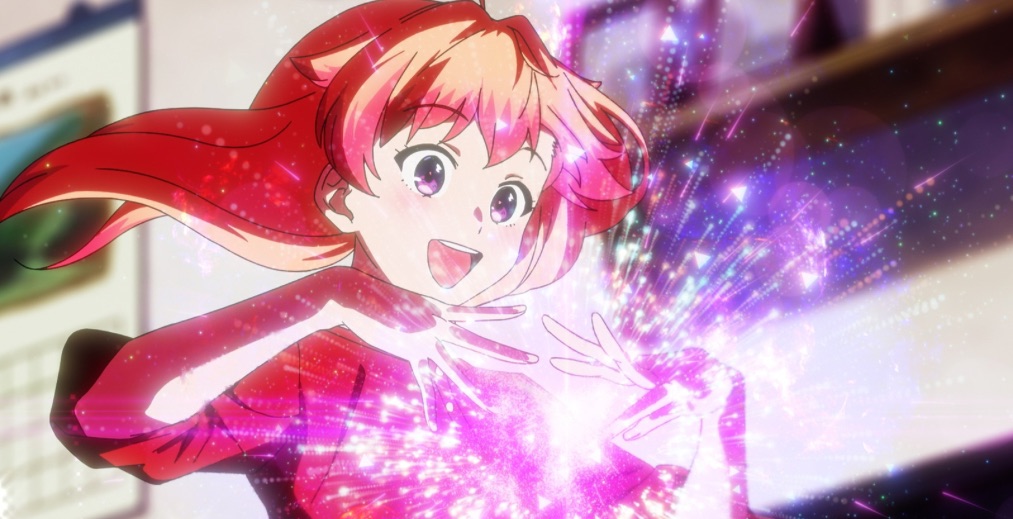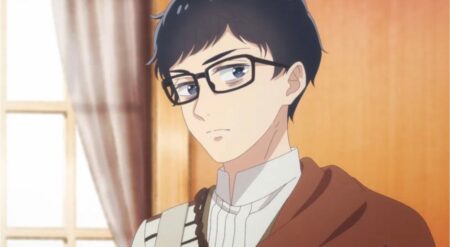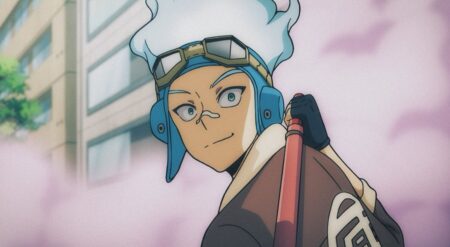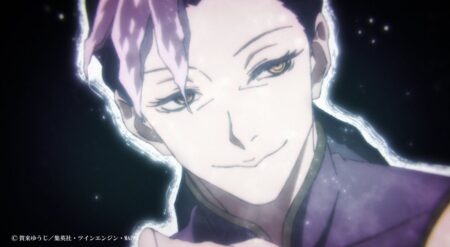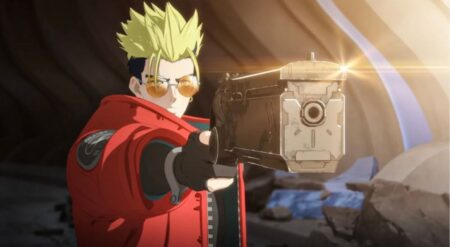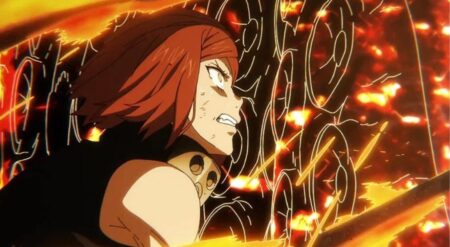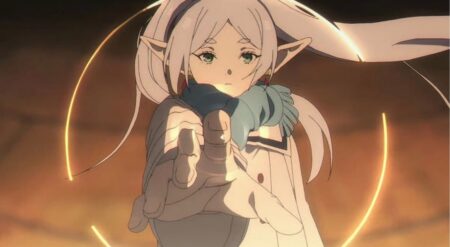Possessing an abundance of silliness, Witch Watch effortlessly charms with its big laughs and hilarious character dynamics. Based on the series by mangaka Kento Shinohara and directed by Hiroshi Ikehata (Magical Destroyers), the adaptation of Shueisha’s Weekly Shōnen Jump series takes an unlikely duo of protagonists and plants them directly into a slice-0f-life, gag anime. Bolstered by committed and lively voice performances, the series’ first three episodes find their legs with surprising immediacy.
Nico (Rina Kawaguchi) and Morihito (Ryota Suzuki) are childhood friends who are separated when Nico must leave for training as a witch. One day, Morihito learns from his father that she’s returning and will be staying in their home, just the two of them, as his father leaves for work. Morihito, despite his human appearance, is an ogre and physically strong due to his training. With no real choice in the matter, it’s decided that to protect Nico, he will become her human familiar as the two attend high school and deal with the day-to-day upheavals adolescence presents them.
While the mission is to protect Nico, Witch Watch makes it clear that the biggest threat to her livelihood, at least for now, is herself. Some of the biggest laughs of the first three episodes come when she tries using magic only to suffer the pitfalls of her spells. She can make things light, but there’s a rebound effect, making her physically and mentally heavy later. She can make multiples of herself, but that only means she will become smaller and weaker. She can copy clothes from magazines, but only what she can see, meaning the back of her outfits is see-through.
It’s this type of chaos that permeates throughout Witch Watch and makes it such hectic fun. It’s unpredictable. However, the funniest gag happens early when Nico turns herself flat to demonstrate her power to Morihito, desperate to win his approval and affection. The buildup of the moment is flawless as pressure mounts to turn her back to normal. The series excels and lands the in-the-moment joke and builds to the final punchline.
Lovable characters help Witch Watch soar.
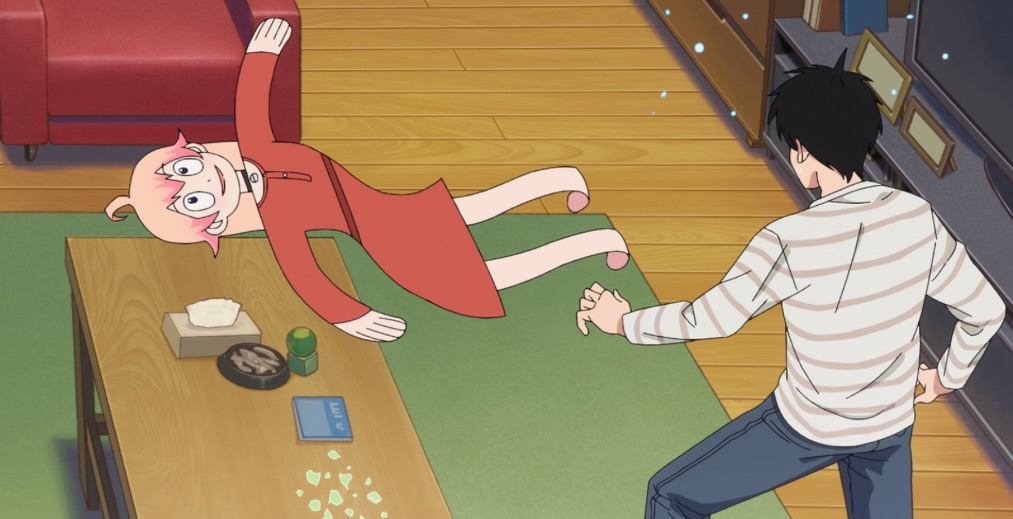
This is, in part, due to the excellent lead characters at the heart of the series. Nico is winsome as a witch in training who, more often than not, is led by her impulses. Having been so long removed from normal society, she’s initially a bit out of her depth but acclimates quickly to high school life. Her biggest hurdle, for now, is her crush on Morihito, who, in turn, is completely oblivious. She adores him and has since they were children, while he’s always seemed somewhat duty-bound to keep her out of trouble.
Her classmates quickly pick up on their dynamic, interrogating whether they’re dating or not. Morihito, meanwhile, is lovable for all of his surprising eccentricities. He loves a quiet moment on weekends to enjoy his coffee in solitude and obsesses over vintage clothing—mainly European vintage clothing. He gets sad when the eraser to his mechanical pencil breaks, yet he can stop a flying truck from crashing into the ground. The contrasts and opposing aspects of his personality make him so infectious.
Witch Watch relies a lot on these two as it’s yet to expand the ensemble beyond minor supporting characters who all marvel over the two supernatural abilities in their class. The series will undoubtedly be more lively once there’s a bigger cast of characters to care about who help alleviate the potential repetition of the narrative. Because if it’s always simply ‘Nico messes up’ followed by ‘Morihito protects her’ it could grow tiresome. By the end of Episode 3, there’s at least the introduction of a new character who will likely help shake up any redundancies.
The nonstop humor also helps distract from some of the lesser elements, specifically the animation and character designs. While there’s something funny about each character having one nonsensical design detail, it’s also distracting. From Bibury Animation Studios, the series offers some crisp and colorful animation, but the movement is sometimes flat. It’s not terrible, and some charged moments allow for some fluid action sequences, but it’s also not what makes the series stand out. Aside from some vivid backgrounds and animation cuts specifically used to drive home the punchline, the artistry is the weakest component.
An abundance of references delivers constant comedy.
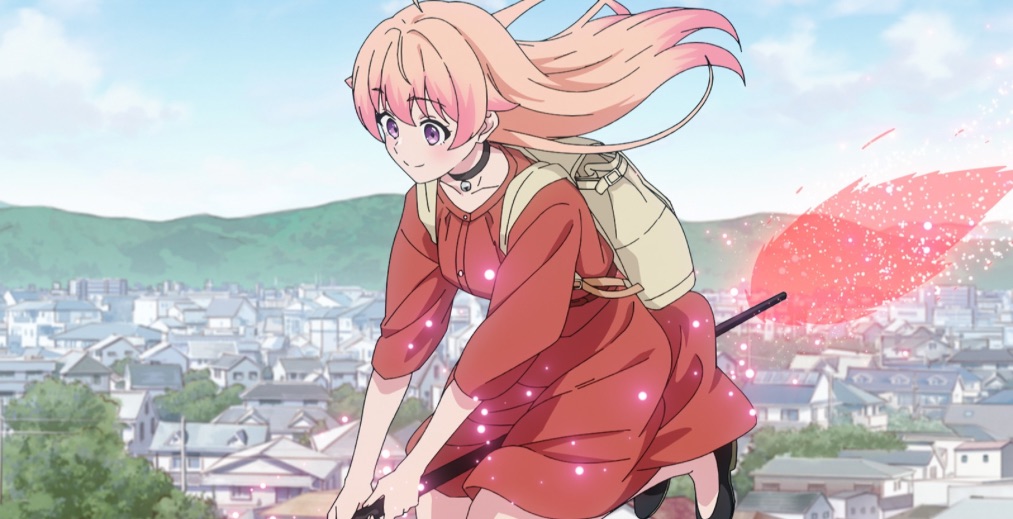
It’s serviceable but not noteworthy. That said, the comedy and references are enough to make up for it, hitting the perfect stride of past gag comedy series such as The Disastrous Life of Saiki K (referenced in the anime), Komi Can’t Communicate, Life Lessons with Uramichi Oniisan, and even Nichijou. From the pacing to the character specificities and the vignette-style stories, it all adds up to a series that draws from the past while instilling its own personality.
That’s made clear through all of the deliberate references. From Hunter x Hunter and Dragon Ball to Fruits Basket and Demon Slayer, there are constant instances where other manga and anime are referenced, sometimes directly or in passing. Being a closeted otaku, their teacher makes these easy gags as she reacts to the magic infecting her classroom with the enthusiasm and shock of someone immersing themselves in the fictional lives of a popular series.
Possessing endless laughs and a fun, lighthearted atmosphere, Witch Watch delights. While the overall style has room for improvement, the humor is so boisterous and contentious that it makes it easy to forget its shortcomings. With lovable characters enduring heightened comedic scenarios, Witch Watch will win you over.
Witch Watch played in theaters March 16-18 before streaming on Crunchyroll on April 6.
Witch Watch
-
Rating - 8/108/10
TL;DR
Possessing endless laughs and a fun, lighthearted atmosphere, Witch Watch delights. While the overall style has room for improvement, the humor is so boisterous and contentious that it makes it easy to forget its shortcomings.

